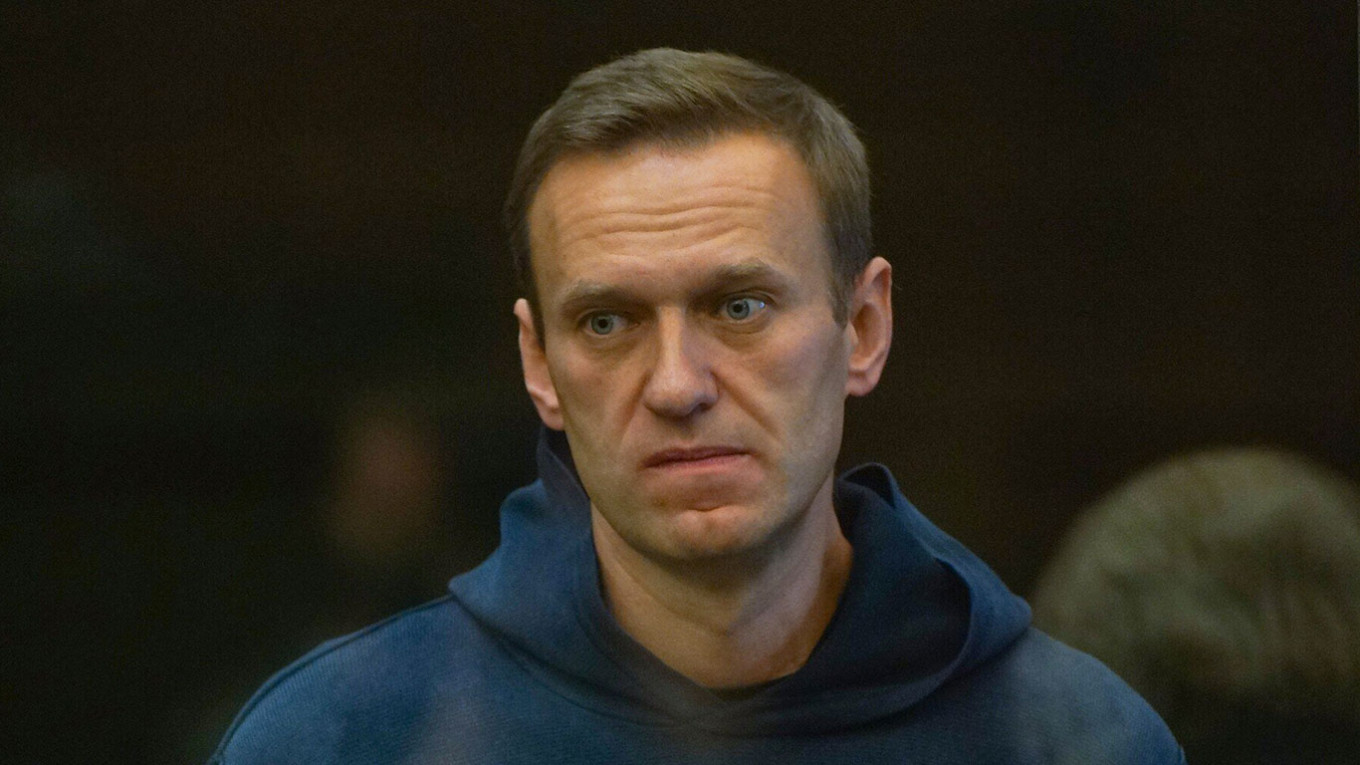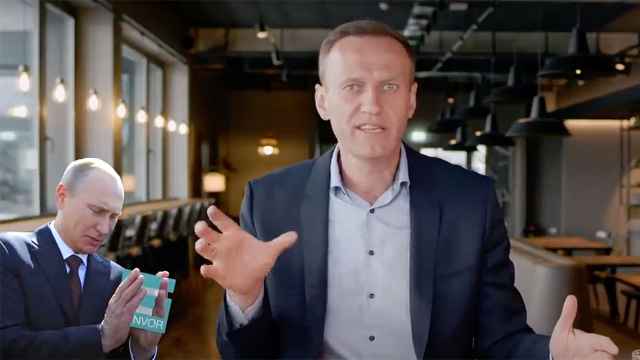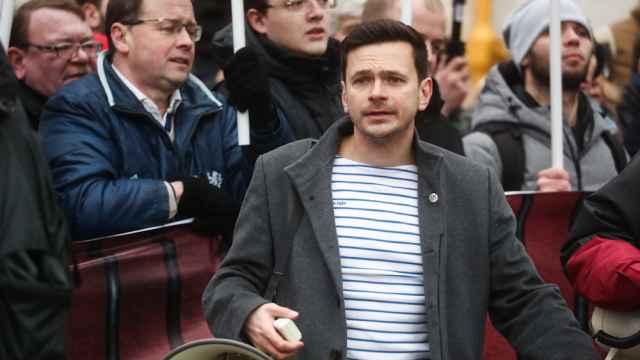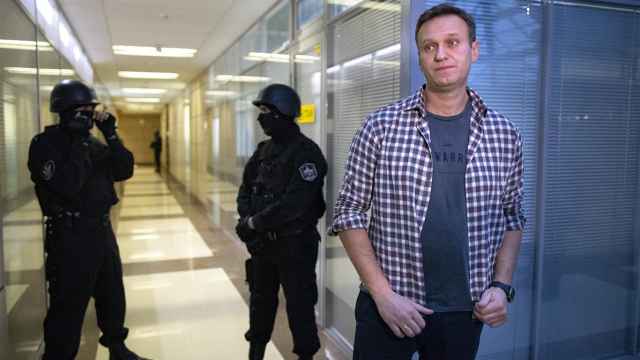Jailed Kremlin critic Alexei Navalny has been ordered to spend six months in a designated punishment cell, he said Wednesday as his supporters expressed growing concern that his life was in danger.
President Vladimir Putin’s most vocal domestic opponent is serving a nine-year sentence in a maximum-security penal colony 250 kilometers east of Moscow on fraud charges he calls politically motivated.
Prison officials have now ordered Navalny, 46, to spend six months — the maximum possible term — in a so-called PKT cell, his lawyer Vadim Kobzev tweeted.
These punishment cells are entirely isolated from other parts of a prison complex and prisoners sent there are known to endure harsher conditions than those in ordinary cells.
Prisoners in PKT cells are allowed one short visit every six months; one package delivery every six months; and a daily walk lasting 1.5 hours. Communication with other inmates is limited, but prisoners may still borrow books from the prison library and write letters.
“I haven't had any visits for eight months and yesterday I was told that I’d be transferred to a [PKT cell] for the maximum possible term of six months. No visits are allowed there. This means more than a year without a visit. Even maniacs and serial killers serving life sentences have the right to receive a visit, but I don’t,” Navalny wrote in a Twitter post.
“Well, hardships make one tougher, though I don't understand why this should apply to my children too. But most importantly, when something like this happens to you, you realize how important it is to fight this unscrupulous regime,” Navalny said.
Kobzev said his client’s health had significantly deteriorated over the past month and that prison medics were improperly treating his respiratory illness with excessive antibiotics, causing him to lose 7 kilograms and experience sharp stomach pains.
“These actions cannot be regarded as anything other than as an open strategy to destroy Navalny’s health by any means necessary,” Kobzev tweeted.
Navalny’s press secretary Kira Yarmysh decried his repeated placements in solitary confinement for alleged infractions over the past year.
“I remind you, all this time [there were] no calls, no visits. A concrete cage,” Yarmysh wrote on Twitter.
“Putin tried to kill Navalny quickly. Now he is killing him slowly and torturing him.”
Navalny was imprisoned in January 2021, when he returned to Russia after recovering from a near-fatal poisoning with what Western scientists determined was Novichok, a banned military-grade nerve agent developed by the Soviets.
Russian officials outlawed Navalny’s nationwide political and activist organizations later that year, prompting nearly all of his close aides to leave the country to avoid prosecution.
Navalny has vowed to continue his opposition to the Kremlin and the war in Ukraine from prison.
A Message from The Moscow Times:
Dear readers,
We are facing unprecedented challenges. Russia's Prosecutor General's Office has designated The Moscow Times as an "undesirable" organization, criminalizing our work and putting our staff at risk of prosecution. This follows our earlier unjust labeling as a "foreign agent."
These actions are direct attempts to silence independent journalism in Russia. The authorities claim our work "discredits the decisions of the Russian leadership." We see things differently: we strive to provide accurate, unbiased reporting on Russia.
We, the journalists of The Moscow Times, refuse to be silenced. But to continue our work, we need your help.
Your support, no matter how small, makes a world of difference. If you can, please support us monthly starting from just $2. It's quick to set up, and every contribution makes a significant impact.
By supporting The Moscow Times, you're defending open, independent journalism in the face of repression. Thank you for standing with us.
Remind me later.







